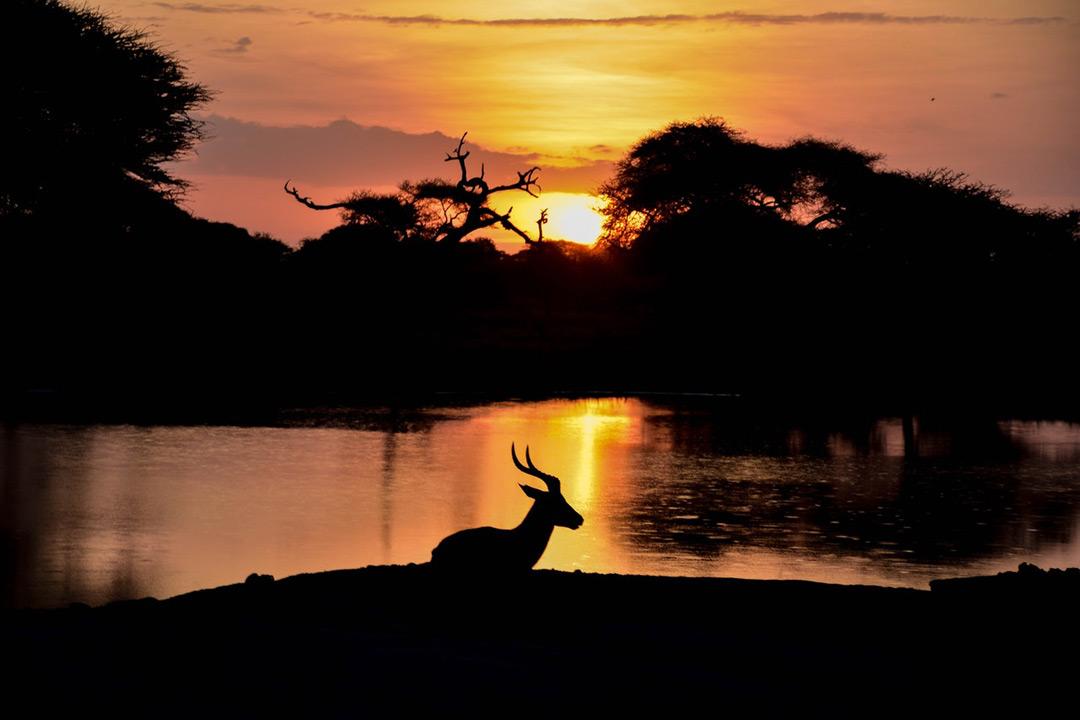African hunting draws adventure seekers from around the world, offering a chance to experience the continent’s wild landscapes and diverse wildlife. We know that for many, the idea of tracking game across Africa’s open savannahs and dense bush is both thrilling and unforgettable.
Our African hunting safaris are designed for those who want more than just a hunt. Each trip lets you immerse yourself in Africa’s natural beauty while pursuing some of its most iconic species. Whether you’re new to game hunting or have years of experience, we make it easy to find the right safari that matches your interests and expectations.
[DYNAMIC-BLOGTABLEOFCONTENT]
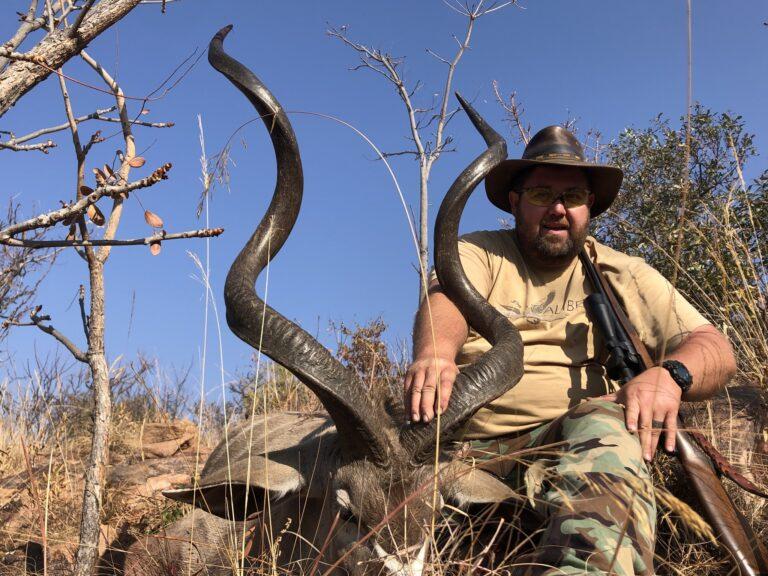
Key Takeaways
-
African hunting safaris provide unique opportunities to pursue both dangerous game (like the Big Five) and diverse plains game species across legendary landscapes.
-
Careful planning—including selecting the right destination, securing proper permits, and choosing the best hunting season—is essential for a successful and legal African hunt.
-
Ethical and sustainable hunting practices support conservation efforts, fund anti-poaching initiatives, and play a crucial role in supporting local communities.
-
Safety and preparation—such as following gear checklists, practicing fair chase, and heeding expert guidance—ensure rewarding and incident-free hunting experiences.
-
Non-hunters on African hunting trips can enjoy a wide range of alternative activities, including cultural tours, wildlife photography, and nature excursions.
Understanding African Game Species
Getting to know African game species lays the groundwork for anyone interested in African hunting safaris. Whether you are making your first trip or returning for another adventure, understanding the types of animals to hunt in Africa and their environments is key.
Dangerous Game vs. Plains Game
When African hunting guides and experts discuss species, they usually talk about two groups—dangerous game and plains game.
-
Dangerous game includes the Big Five: elephant, lion, leopard, rhinoceros, and Cape buffalo. Many listings also include hippopotamus and crocodile, forming the Dangerous Seven. These hunts push your skills and preparation, especially if you are looking into dangerous game hunting Africa options. Most dangerous game species live in countries such as Tanzania, Zambia, and Zimbabwe. These hunts come with strict legal requirements for hunting in Africa, including specific permits and government regulations. For most, dangerous game hunting in Africa is both a challenge and a highlight.
-
Plains game covers a wider range of antelope and medium-sized animals. Common examples include kudu, impala, eland, gemsbok, sable, and springbok. Hunters in South Africa and Namibia often target these species, since hunting safaris in South Africa are especially known for the variety and number of plains game. Plains game hunts make up most African hunting safaris and are popular because of their accessibility and diversity. Plains game animals move through savannahs, grasslands, and wooded areas, making each hunt unique.
Commonly Hunted Animals
Planning African hunting packages means choosing from a broad list of animals, so knowing which ones are commonly hunted can help you decide what to expect on an African hunt.
Big Five and Dangerous Species
-
Elephant: Large, intelligent, often found in Zambia and Zimbabwe.
-
Lion: Frequently hunted in Tanzania; requires patience and careful stalking.
-
Leopard: Mostly hunted over bait using blinds. High levels of preparation and local expertise are required.
-
Rhinoceros: Strict quota and protection rules apply; found in selected safaris.
-
Cape Buffalo: Often encountered in herds; highly sought-after for big game hunting in Africa.
-
Hippopotamus and Crocodile: Added to many dangerous game packages, especially along rivers and water sources.
Plains Game Varieties
-
Kudu: Known for long spiral horns; found across southern Africa.
-
Eland: Africa’s largest antelope; found in open plains and semi-arid areas.
-
Impala: Agile and numerous; common target in most regions.
-
Springbok: Abundant in South Africa and Namibia; swift and wary.
-
Sable Antelope: Noted for striking features and strong build; a prized trophy.
Table: African Game Species by Region
|
Species |
Region(s) |
Group |
|---|---|---|
|
Elephant |
Zambia, Zimbabwe |
Dangerous Game |
|
Lion |
Tanzania, Zimbabwe |
Dangerous Game |
|
Leopard |
Tanzania, Mozambique |
Dangerous Game |
|
Rhino |
Selected southern Africa |
Dangerous Game |
|
Cape Buffalo |
Botswana, South Africa |
Dangerous Game |
|
Kudu |
South Africa, Namibia |
Plains Game |
|
Eland |
South Africa, Ethiopia |
Plains Game |
|
Impala |
South Africa, Namibia |
Plains Game |
|
Springbok |
South Africa, Namibia |
Plains Game |
|
Sable Antelope |
Zambia, Zimbabwe |
Plains Game |
So, choosing between dangerous game and plains game hunts depends on your goals, the best countries for African hunting, and the sort of experience you want. For more variety, many listings allow you to mix both types during your safari. And if you want the most value, comparing African hunting packages and checking the cost of hunting safaris in Africa makes budgeting easier.
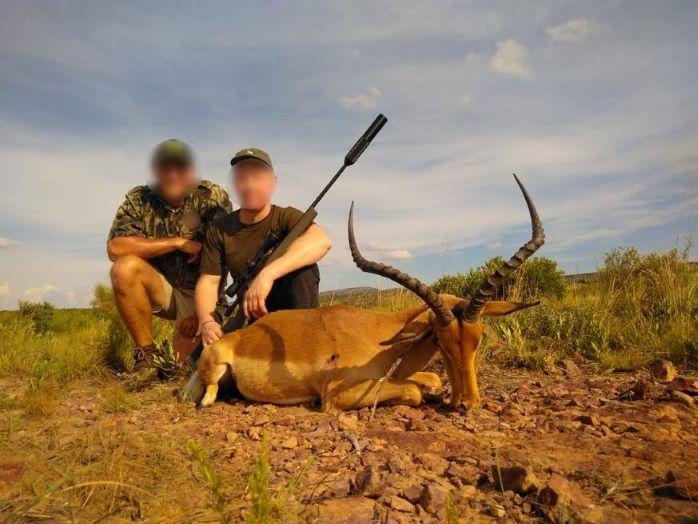
Planning Your African Hunting Safari
Getting started with African hunting safaris requires attention to several key details. Planning ahead avoids last-minute problems and maximizes your experience. The steps below focus on practical advice as well as essential African safari hunting tips.
Choosing the Right Destination
Picking where to go is the first big step. Various African countries specialize in different types of animals to hunt in Africa and offer distinct landscapes for big game hunting in Africa.
-
South Africa: Known for hunting safaris in South Africa, this country provides both plains game and dangerous game. The region offers accessible travel, modern amenities, and high game density.
-
Namibia: Namibia focuses on ethical hunting Africa practices and is popular for rich populations of gemsbok, kudu, and springbok.
-
Tanzania: Tanzania delivers classic African hunts targeting the Big Five. The area is well-regulated and suited for hunters wanting a traditional, wild experience.
-
Zimbabwe: Famous for dangerous game hunting Africa, Zimbabwe is a leading option for those seeking lion, elephant, and buffalo.
Each destination comes with unique local regulations, terrain, and game species. When comparing African hunting listings, consider your priority species, travel logistics, and the type of African hunting package that fits your goals.
Selecting the Best Time of Year
Understanding the best time of year to hunt in Africa greatly influences success and comfort. Game-viewing improves as watering sources shrink and visibility grows during the dry season.
Key points to remember:
-
South Africa and Namibia: April to September is the peak season, with the bush thinning out and animals gathering at waterholes.
-
Tanzania: June to October offers ideal tracking conditions and big game visibility.
-
Zimbabwe: Late July to October is optimal, as dry weather concentrates game movement.
Booking prime dates at least a year in advance provides more choice in packages and gives time for thorough preparation. These windows also tend to have more pleasant temperatures and fewer insects.
Legal Requirements and Permits
Complying with legal requirements for hunting in Africa brings peace of mind and avoids delays. Permits protect both wildlife and visitors, making them a non-negotiable part of all African hunting safaris.
Typical documentation includes:
-
Firearm permits: A legal must for bringing rifles or shotguns into most countries. Arrangements often begin months prior to travel, and many outfitters help file proper paperwork.
-
Hunting licenses: Each region and species requires proper licensing, which limits quotas and ensures sustainable use.
-
Visas and entry paperwork: Many African countries require visitor visas for foreign hunters, with processing times ranging from days to weeks depending on the country.
-
Export/import papers: Trophy export permits and, often, CITES certificates are mandatory if exporting certain protected species after your African hunt.
We always confirm up-to-date requirements with authorities before you depart. Working with a reliable African hunting guide keeps your journey legal and organized.
Table: Prime Destinations and Seasons for African Hunting Safaris
|
Country |
Key Species |
Prime Season |
Permit Type Required |
|---|---|---|---|
|
South Africa |
Kudu, impala, buffalo |
April – September |
Firearm, Hunting License |
|
Namibia |
Gemsbok, springbok |
April – September |
Firearm, Hunting License |
|
Tanzania |
Lion, elephant, leopard |
June – October |
Firearm, Hunting License |
|
Zimbabwe |
Buffalo, elephant, lion |
July – October |
Firearm, Hunting License |
When you plan effectively, choosing suitable African hunting gear, knowing how to hunt in Africa, and complying with laws ensures a rewarding experience from start to finish. For those seeking the best countries for African hunting or needing a gear checklist, referencing local guides and reputable listings will offer additional value.
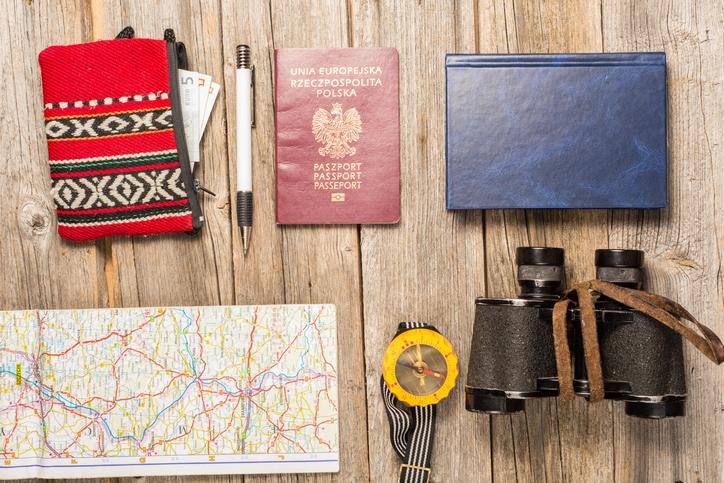
Preparing for the Hunt
Preparation shapes the success and satisfaction of every African hunting experience. This planning section explains how to hunt in Africa effectively, focusing on gear, health, and trip logistics.
Essential Gear and Packing Tips
Getting the right African hunting gear checklist sorted smooths the start of your trip.
-
Firearms and Ammo: Select rifles or bows approved for your target game. Dangerous game hunting in Africa usually demands calibers from .375 up, while plains game may need lighter options like .270 or .30-06. Always pack extra ammunition for practice and main hunts.
-
Optics: Reliable binoculars and rifle scopes help with identification and accuracy.
-
Clothing: Bring lightweight layers for hot days and cold mornings. Include rain gear if traveling during the wet season.
-
Footwear: In flat grassy terrain, lightweight boots with soft soles offer comfort and quiet movement. Rugged boots with ankle support work better for rocky or mountainous environments.
-
Accessories: Lists for an African hunting safari often include hats, gloves, shooting sticks, cleaning kits, insect repellent, sunscreen, and a pocketknife.
-
Paperwork: Add firearm permits, hunting licenses, and travel documents to your essentials, matching the legal requirements for hunting in Africa.
Packing right means fewer surprises and safer days in the field. When asking what to expect on an African hunt, comfort and reliability rank high with well-chosen items.
Health and Safety Precautions
Health and safety measures improve chances of enjoying your African hunting safari.
-
Vaccinations: Follow CDC guidelines. Common vaccinations include yellow fever, hepatitis A and B, and typhoid.
-
Malaria Prevention: Depending on location, anti-malarial medication and insect repellent become critical.
-
Physical Preparation: Stamina matters as terrain can involve long treks through bush or savannah. Cardiovascular training and hiking practice add value before heading out.
-
Safety Practices: Always point firearms in a safe direction, keep them unloaded until ready to shoot, and follow instructions from your African hunting guide.
-
Emergency Plan: Know how to contact emergency services, and keep a basic first-aid kit.
-
Survival Skills: Navigation and basic wilderness knowledge matter, especially in remote African hunting locations.
If hunting safaris in South Africa or other best countries for African hunting top your list, handling local safety tips prevents setbacks.
Travel and Accommodation Arrangements
Travel planning and where you stay can make or break African hunting safaris.
-
Flights: Book well in advance for popular seasons. Use carriers experienced with firearm transport.
-
Internal Transfers: Many prime hunting areas use bush planes or 4x4s for access. Confirm these details in advance.
-
Accommodation Types: From luxury lodges to tented camps, options vary. Decide based on travel companions, trip length, and desired comfort.
-
Travel Documents: Check visa requirements for each destination. South Africa, Namibia, Tanzania, and Zimbabwe feature different entry rules.
-
Trophy Export: For big game hunting in Africa, arrange export permits in advance. Special rules cover species like elephant and leopard.
-
Non-hunter Activities: Some locations offer photo safaris, spa treatments, or cultural tours for companions wanting to explore beyond the hunt.
In sum, aligning planning and expectations with practical needs is the core of African hunting safaris. Not sure where to stay or how to move between areas? Early communication with local operators provides real answers. If smooth experiences and clear details are a priority, these tips on what to expect on an African hunt are your guide.
Hunting Methods and Techniques
Understanding the main hunting methods makes planning African hunting safaris much easier. We see these techniques in action everywhere—from the open plains of South Africa to the dense bushveld where big game hunting in Africa is at its most thrilling. Each method delivers distinct challenges and suits different types of animals to hunt in Africa.
Walk and Stalk
Walk and stalk is the most common answer to how to hunt in Africa for plains game. We start at dawn, leaving camp behind to cover ground on foot. Spotting fresh tracks comes first, then we check the wind direction and lighting to avoid being noticed. Moving in silence, we follow the game’s path, making use of natural cover like bushes or termite mounds.
Physical fitness matters most for this method—hunting safaris in South Africa can involve several miles of trekking over sand or rocky hills. Success depends on patience and sharp observation skills. Walk and stalk hunting works best for antelope including kudu, impala, and eland. And when targeting dangerous game hunting Africa, this technique often blends tracking with careful, steady approach.
Driven Hunts
Driven hunts are popular for organized group hunts in areas with thicker cover. Local guides and trackers drive game toward hunters strategically positioned in specific spots. This increases chances of encounters with fast-moving or elusive animals, such as bushbuck or warthog.
We always coordinate carefully during these hunts to maintain safety standards and comply with legal requirements for hunting in Africa. Communication between guides and guests is essential—nobody moves unless the area is secure and all shooters have clear, unobstructed lines of sight.
Driven hunts offer high success rates but call for discipline and teamwork, especially in countries where policies and rules are strict. If you have limited time, these hunts can make the most of your African hunting package.
Fair Chase Ethics
Fair chase ethics are central to ethical hunting Africa-wide. We follow strict guidelines to reduce animal stress and maintain natural behaviors. No vehicle is used to chase game, and shooting is restricted to safe, humane distances. Hunts that involve baiting or cornering animals in enclosed areas do not qualify as fair chase.
We always respect seasonal restrictions and landowner rights, upholding all conservation and anti-poaching measures. Our African hunting safaris leave a positive impact by supporting ecosystem health and directing revenue into community conservation efforts. For anyone planning an African hunt, fair chase ensures hunting remains sustainable and valued for generations.
Key Practices for Ethical African Hunting
-
Respect local hunting seasons and quotas
-
Target only legal species listed in permits
-
Use proper shot placement to ensure humane kills
-
Practice leave-no-trace principles in camps
Maintaining these standards means every big game hunting in Africa adventure fulfills both personal goals and conservation responsibilities. If you are looking for the best African hunting experience, prioritizing ethics is non-negotiable.
African hunting methods connect us to the core values of skill, patience, and respect for the wild. Whether you choose walk and stalk, driven hunts, or combine both with fair chase principles, a successful hunt always depends on careful planning, ethical conduct, and knowledge of local terrain. For detailed African hunting guide resources, explore listings curated by region, animal type, and legal requirements to match your goals.
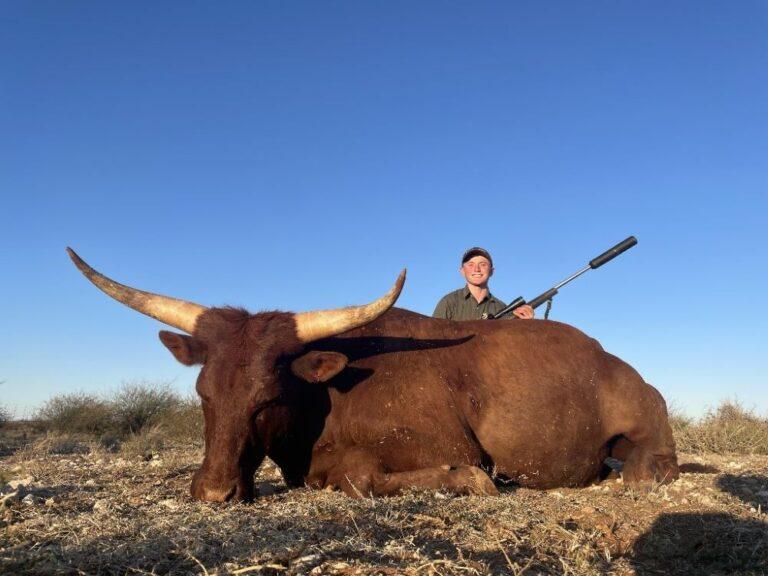
Conservation and Ethical Considerations
African hunting brings together adventure, conservation, and community support. By choosing regulated African hunting safaris, we promote the long-term health of species, habitats, and local economies.
Hunting’s Role in Conservation
African hunting contributes directly to conservation when hunts adhere to established regulations. Through careful management and compliance, big game hunting in Africa delivers necessary funding—often covering up to 100% of anti-poaching programs in several best countries for African hunting, such as South Africa and Zimbabwe. Across major destinations, hunting revenue supports wildlife reserves, habitat restoration, and scientific research aimed at protecting endangered populations like lions, elephants, and rhinos.
Hunting Conservation Impact Table
|
Country |
Wildlife Conservation Funds (from hunting) |
Main Supported Species |
|---|---|---|
|
South Africa |
70–100% |
Rhino, Buffalo, Plains Game |
|
Tanzania |
Up to 80% |
Elephant, Lion, Leopard |
|
Zimbabwe |
90%+ |
Elephant, Antelope, Buffalo |
Regulated African hunting safaris not only maintain the populations of common species but also create safe zones for rarer animals, ensuring a balance that supports the whole ecosystem. Our African hunting guide partners with conservation groups to ensure that hunts are sustainable and positively impact wild habitats.
Supporting Local Communities
Supporting local communities is a core pillar of responsible African hunting. Revenue from hunting safaris often represents the primary source of income for rural areas. Local jobs in guiding, tracking, hospitality, and logistics come directly from big game hunting in Africa. Community development projects—schools, clinics, infrastructure—are commonly funded through hunting concessions.
Most African hunting packages will include community engagement activities. Hunting safaris in South Africa and other regions may offer tours to local villages, where guests learn about traditions and how conservation funding helps support livelihoods. By integrating community support, we help ensure continued wildlife preservation, since local stewardship is key.
Practicing Ethical Hunting
Practicing ethical hunting in Africa means following strict legal requirements for hunting in Africa and adhering to established fair chase ethics. Ethical hunting Africa standards require hunters to respect all quotas, seasons, and age or sex restrictions when selecting which types of animals to hunt in Africa.
Key actions for ethical African hunting include:
-
Following local and international regulations (e.g. hunting seasons, protected species)
-
Taking responsible shots for quick, humane kills
-
Leaving no trace by removing waste and minimizing habitat disturbance
-
Respecting both wildlife and local communities
-
Choosing African hunting safaris that support anti-poaching initiatives and habitat protection
By combining responsible practice with official African hunting gear checklist items, we ensure each hunt supports the long-term health and accessibility of African wilderness. For anyone considering how to hunt in Africa, aligning with ethical standards preserves both the tradition and the land for future generations.
Safety Tips and Warnings
Safe and successful African hunting safaris always depend on being prepared for unpredictable challenges. Knowing how to approach dangerous game and navigate Africa’s diverse environments keeps hunters and companions protected. And when chasing the thrill of African hunting, it’s smart to review reliable advice before anything else.
Dealing with Dangerous Game
Understanding how to hunt in Africa means respecting big game, especially the Big Five and other dangerous species. Strong preparation and strict principles reduce risk when tracking lions, elephants, buffalo, leopards, hippos, and crocodiles. Many accidents occur by getting too close or moving carelessly.
-
Use experienced African hunting guides for all dangerous game hunting Africa expeditions. Their knowledge of animal behavior reduces the dangers of close encounters.
-
Approach animals with caution. Always maintain a safe distance until a clear and ethical shot can be taken. Patient observation keeps you out of unnecessary danger zones.
-
Recognize warning signs. For example, an elephant flapping its ears or a buffalo watching intently suggests agitation.
-
Carry backup protection. When hunting the most dangerous animals, sidearms and heavy-caliber rifles serve as important secondary measures.
-
Communicate with your team before and during the hunt. Each person must know the plan and how to respond quickly in case of an emergency.
Staying Safe in African Wilderness
Simple habits and consistent attention assure personal safety, no matter whether your destination is a top location among the best countries for African hunting or a more remote region.
-
Always follow an African hunting gear checklist. This covers essentials like sturdy boots, first aid kits, water, weather-appropriate clothing, protective eyewear, and sunblock.
-
Remain alert for potential hazards—venomous snakes, insects, and unpredictable terrain feature across African wilderness areas. Avoid walking through thick grass without a guide in front.
-
Abide by legal requirements for hunting in Africa. These regulations exist not only to protect wildlife but also to manage hunter safety.
-
Adhere to ethical hunting Africa guidelines. Responsible hunting prevents risky behavior such as firing at uncertain targets or tracking wounded game alone.
-
Know the weather patterns. Sudden storms or extreme temperatures affect visibility, animal movements, and even your own stamina during big game hunting in Africa.
-
Carry navigation tools and keep maps or GPS devices charged. Many African hunting safaris take place in vast, unfenced conservancies where getting lost becomes a real risk.
-
Store food safely and keep campsites clean. Attracting wildlife to your campsite invites unnecessary danger and complicates routine activities.
These practical African safari hunting tips prepare you for the realities of what to expect on an African hunt. By prioritizing safety in every action, our hunts offer true adventure—while always respecting both the wild and everyone involved.
Common Issues and Troubleshooting
Even the best-organized African hunting safaris can present unexpected challenges. Knowing common issues and practical troubleshooting strategies helps every hunter make the most of their African hunting experience.
Travel Complications
Travel issues are among the most common concerns in African hunting. Delays at customs or problems with permits can happen, especially if you do not have all documentation ready. For big game hunting in Africa, border officials often check firearm permits and hunting licenses closely. Using up-to-date travel information can help, but keeping multiple copies of all key documents—such as passports, firearm declarations, and local entry permits—prevents most last-minute headaches.
Lost baggage sometimes disrupts travel, especially with connecting flights in remote locations. If your African hunting gear checklist includes critical items, such as specific optics or medication, pack those in carry-on luggage. For all other gear, label bags both inside and out with your details.
Late arrivals or missed internal transfers challenge even the best hunters. Communicate your flight plans clearly with your outfitter or African hunting guide to allow for contingency pickups or transport changes.
Gear Malfunctions
When gear fails during African hunting, the hunt becomes risky and less effective. Firearms should be cleaned and checked before travel, but temperature swings or dust can still cause problems. Carry basic cleaning tools and a backup firing pin or essential parts if possible for your firearm model. Before every outing, test optics to avoid discovering fogged lenses in the field. Extra batteries for rangefinders or cameras go a long way in remote areas.
Boots and clothing may wear out or rip, especially if walking through thorn bush or rocky ground. Consider packing a compact repair kit: tape, strong glue, and extra laces are small but useful. Routine checks each evening keep clothing and gear in working order.
Health Concerns
Health can shift quickly during African hunting safaris, with the environment posing unique risks. Dehydration remains the leading health concern due to heat, so we keep water available on every hunt and remind everyone to drink regularly. For malaria prevention, use insect repellent and confirm vaccinations before travel according to government guidelines.
Bites, scrapes, and minor injuries often occur in the field. Bring a comprehensive first-aid kit and review procedures for dealing with snake bites or insect stings. Most hunting guides in Africa hold basic medical training, but knowing your own allergies or chronic conditions helps in emergencies.
Unexpected stomach upsets happen when trying local foods or water. Stick to bottled water whenever possible and carry a few familiar snacks or electrolytes.
For those searching “what to expect on an African hunt,” these proactive steps help hunters handle most travel, equipment, or health hiccups swiftly. That way, the focus remains on the unique adventure and the unmatched wildlife that make African hunting an unforgettable pursuit.
Alternative Activities for Non-Hunters
African hunting safaris offer premium experiences even for those not interested in hunting. Our camps and lodges include a range of alternative activities, ensuring every guest finds value in their visit.
Cultural Experiences
African hunting packages frequently include unique cultural opportunities. Non-hunters often participate in:
-
Village Visits: Explore nearby communities and observe daily life, with examples like attending craft markets or village celebrations.
-
Traditional Cuisine Tastings: Savor local dishes prepared by resident chefs, often with ingredients sourced from the region.
-
Craft Workshops: Take part in beadwork or traditional weaving classes with local artisans.
-
Storytelling Evenings: Listen to elders share stories about African heritage, legends, or hunting traditions.
These activities enhance understanding of African traditions and provide insight into the culture touched by the African hunting lifestyle.
Sightseeing and Nature Tours
Many African hunting safaris in South Africa and other regions present sightseeing tours and guided nature experiences. Non-hunters can discover:
-
Wildlife Photo Safaris: Ride in specialized vehicles through game reserves to photograph the Big Five and plains game without a hunt.
-
National Park Excursions: Visit destinations like Kruger National Park or the Okavango Delta, viewing diverse wildlife and landscapes.
-
Bird Watching Walks: Join expert guides to spot rare and colorful bird species native to Africa.
-
Hot Air Balloon Rides: Glide above the bushveld at sunrise for sweeping views over hunting concessions and protected lands.
-
City and Landmark Tours: Extend your stay to explore Capetown, visit Victoria Falls, or enjoy scenic vineyards.
These tours enrich African hunting experiences for non-hunters and support conservation by generating revenue for local communities. When booking African hunting listings, check for packages that integrate these non-hunting activities to maximize every guest’s experience.
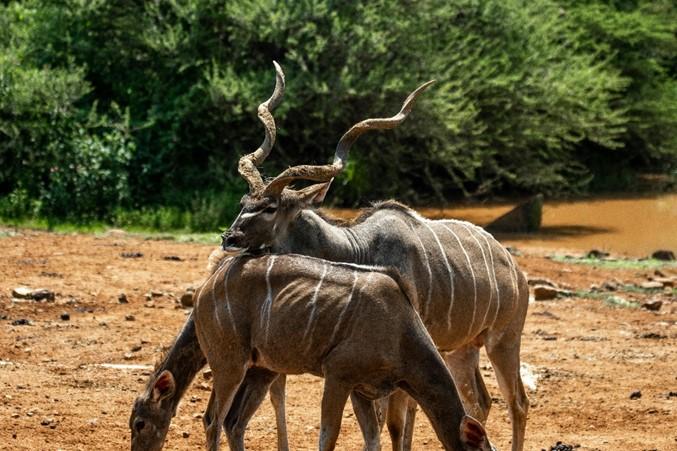
Conclusion
African hunting safaris offer so much more than just the pursuit of game, they invite us into a world where adventure, conservation, and cultural discovery come together. By approaching each trip with respect for wildlife and local communities, we help ensure these experiences remain positive and sustainable.
Whether we’re seasoned hunters or first-time visitors, the memories and lessons from Africa’s wild places stay with us long after the hunt ends. With thoughtful planning and a commitment to ethical practices, we can make our African hunting journey truly remarkable.
Frequently Asked Questions
What is an African hunting safari?
An African hunting safari is a guided adventure where hunters pursue wild game in Africa’s diverse landscapes. Safaris can target dangerous game like the Big Five or plains game, offering a unique outdoor experience for both novice and experienced hunters.
What are the Big Five animals in African hunting?
The Big Five refers to the lion, leopard, elephant, rhinoceros, and Cape buffalo. These species are considered the most challenging and dangerous to hunt, requiring careful planning, legal permits, and often an experienced guide.
How do I choose the best African country for a hunting safari?
Top destinations include South Africa, Namibia, Tanzania, and Zimbabwe. Each offers different game species and unique landscapes. Consider your target species, preferred terrain, and travel requirements when selecting your destination.
When is the best time to hunt in Africa?
The best time is usually during the dry season, which varies by region but often falls between May and October. Dry conditions improve visibility and tracking, making hunts safer and more successful.
What permits or licenses do I need for an African hunting safari?
You’ll need hunting licenses for targeted species, firearm permits, and travel documents. Requirements differ by country, so check with your safari operator to ensure full legal compliance before your trip.
What should I pack for a hunting safari in Africa?
Pack reliable firearms or bow equipment, optics, weather-appropriate clothing (neutral colors), sturdy boots, hats, personal medications, and basic safety gear. Don’t forget travel documents, health certifications, and personal essentials.
How does hunting in Africa support conservation?
Regulated hunting safaris fund anti-poaching initiatives, wildlife management, and community projects. Responsible hunting generates income that helps preserve habitats and protect endangered species.
Can non-hunters enjoy African hunting camps?
Yes, many camps offer activities like wildlife photo safaris, birdwatching, cultural village tours, craft workshops, and nature walks. These add value for non-hunters and offer memorable experiences beyond hunting.
What safety tips should hunters follow on an African safari?
Always hunt with experienced guides, maintain safe distances from wild animals, recognize warning signs, and use proper gear. Follow all local laws, prioritize health and safety, and prepare for emergencies.
What is fair chase ethics in African hunting?
Fair chase means hunting in a manner that does not give the hunter an unfair advantage, respects animal welfare, follows local laws, and upholds conservation values for sustainable wildlife populations.
What are common challenges faced on African hunting safaris?
Hunters may encounter travel delays, lost baggage, gear malfunctions, and health concerns like dehydration or minor injuries. Careful preparation and communication with safari operators help address these issues quickly.
What is the difference between dangerous game and plains game in Africa?
Dangerous game includes species like elephants, lions, and buffalo that pose significant risks and need special permits. Plains game refers to antelope and medium-sized animals such as kudu and impala, which are generally safer and more accessible to hunters.
How does hunting benefit local communities in Africa?
Hunting generates revenue that supports jobs, education, and infrastructure in rural communities. It helps fund development projects and provides direct economic benefits to local people living near wildlife areas.
